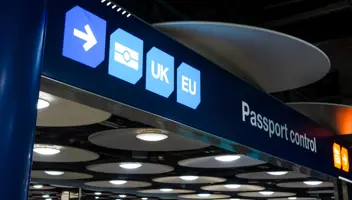You are finally at the end of your immigration journey and have been granted indefinite leave to remain in the UK, also known as settlement or permanent residence.
But is indefinite leave to remain (ILR) really as permanent as the name suggests?
In our last blog, we outlined the ILR process and eligibility. In this blog, we look at what you can do if you lose your ILR status.
Indefinite leave to remain in the UK for the most part is indefinite. However, you can lose it if you are absent from the UK for:
- More than two continuous years; or
- More than five continuous years if you have settled status under EU Settlement Scheme; or
- More than four continuous years if you have settled status and you’re a Swiss citizen or their family member.
If you have been outside the UK for less than 2 continuous years, you will retain ILR and can re-enter the country.
Returning Resident visa requirements
If you have been outside the UK for more than two years, you may be able to re-enter and have your ILR rights reinstated by applying for a Returning Resident visa. You must meet all of the following requirements to produce a successful application:
- You previously held ILR status but are currently outside the UK;
- You have a genuine intention of settling within the UK on your return;
- You have maintained strong ties with the UK during your absence;
- You did not receive public funds to assist your previous departure from the UK (unless applying under the Windrush Scheme);
- You have evidence of your previous ILR status in your passport; and
- If you are under 18 years old, you have written consent from your parent(s) or legal guardian.
How can I evidence strong ties to the UK?
UKVI (UK Visas and Immigration) will assess whether you have maintained strong ties during your absence from the UK, and will consider the following:
- Your family ties in the UK, e.g. partner, parents, children or grandchildren living in the UK;
- Your property and business ties in the UK, e.g. you own or rent property in the UK or have an interest in an ongoing business venture within the UK;
- The length of your original residence and length of time spent outside the UK;
- Reasons for leaving and returning to the UK, e.g. to access health treatment overseas, to care for family, to retire, for employment/self-employment or study; and
- Any other circumstances e.g. unintended absences due to covid, prolonged period of study or accessing medical treatment abroad.
UKVI will also consider “compelling or compassionate circumstances” and each application will be assessed on its individual merits.
The wide discretionary nature of the assessment means that no application is off limits, however the longer you are absent from the UK, the harder it will be demonstrate strong ties to the UK.
Our team of dedicated immigration experts can assess your eligibility and recommend the right documentation for your application.
What evidence is required?
The following evidence may be submitted to evidence your strong ties to the UK:
- Marriage certificate or other information relating to your marital status;
- Details of any family members in UK and correspondence with them;
- Evidence of property in the UK and/or business interests;
- Letters of enrolment or attendance at an education institution abroad;
- Letters of employment if you were required abroad; and
- Medical evidence if your absence was due to medical reasons or caring for another person.
How do I apply?
If you meet the above requirements, you must submit an online application to UKVI. As part of the process, you must enrol your biometrics (fingerprints and picture) at your nearest visa centre and upload your supporting evidence.
It costs £637 to apply and dependants (your partner and children) will need to apply separately if they are eligible.
Applications can take several weeks to process, so you keep this in mind before making plans to return to the UK.
How can we help?
We understand that losing your indefinite leave to remain status can be frustrating and that the Returning Resident visa application is not easy. Our team of immigration experts are here to guide you through the process and answer your questions.
Written by
Related News, Insights & Events

Why was a BNO visa holder and Hong Kong footballer prevented from playing in the UK?
This blog looks at how BNO visa restrictions affect UK athletes, using footballer Ellison Tsang as a case study, and highlights alternative visa routes for aspiring sports professionals.

Visitors to the UK - What happens if an Electronic Travel Authorisation (ETA) is refused
The UK’s new ETA rules explain refusal reasons and offer guidance on what to do if refused, including how to apply for a Standard Visitor Visa.

Record number of Americans apply for British citizenship
A record number of Americans applied for British citizenship in 2024. This blog explains the benefits, process, and requirements for US nationals, married or not.







